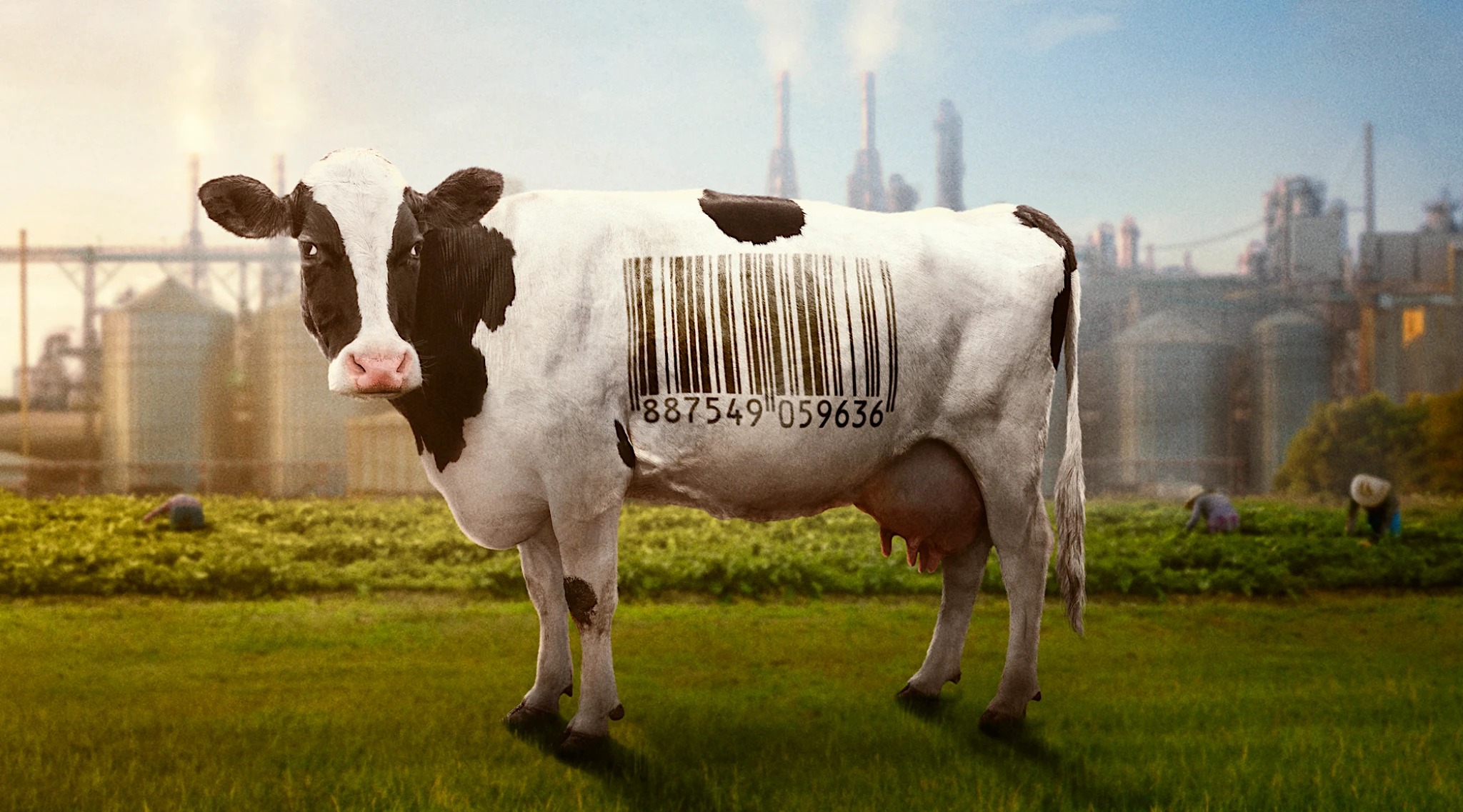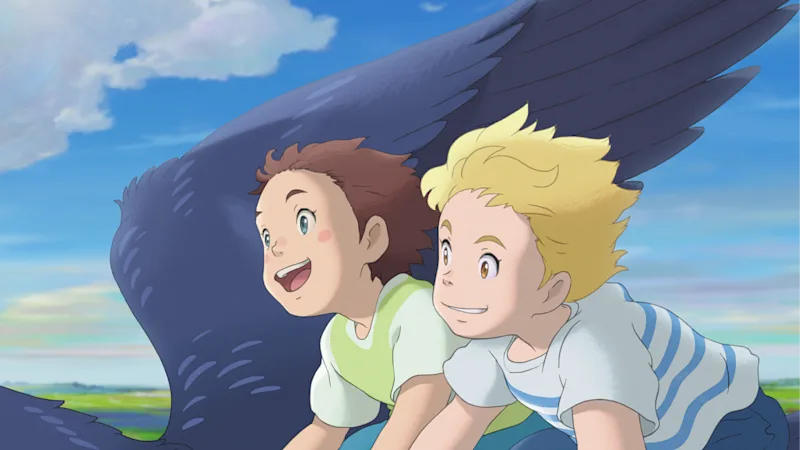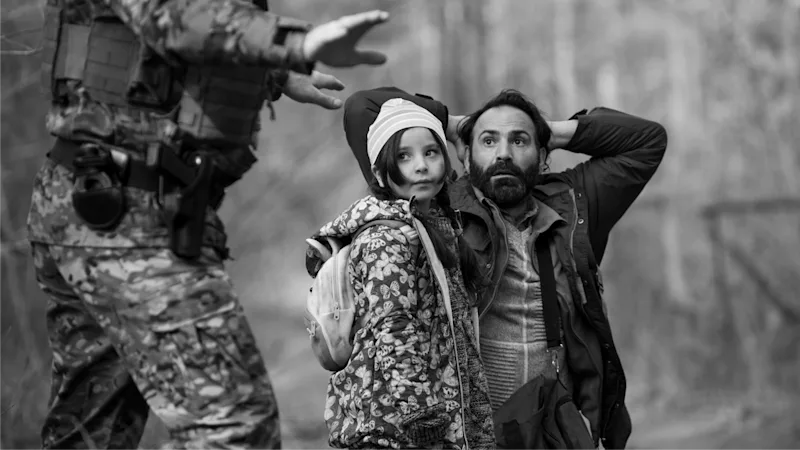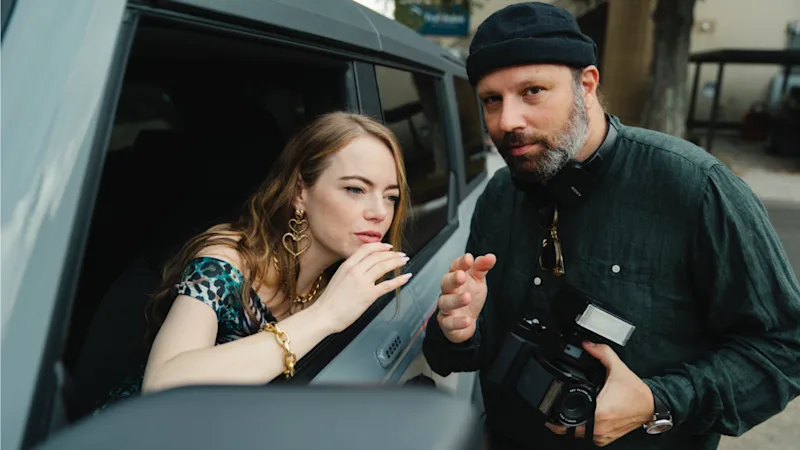At the end of Food, Inc., director Robert Kenner's exposé of America's corporate-controlled food industry, he included a segment titled, "Shocks to the System." "About things that could bring down the food system very easily," Kenner explains. The section warned of cracks in the food system that could lead to the possibility of a world food shortage. He nearly cut it.
"We had a 10-year anniversary screening of our film at Telluride, and I remember thinking, 'We should have cut that section,'" Kenner says. "It was slowing the momentum. And then a few years later, the pandemic hits, and oh my god! That was the most important section in the film."
Despite the success of Food, Inc. — which was Oscar-nominated for Best Documentary Feature Film in 2009 — the filmmaker had no intentions of making a sequel. But as meatpacking plants became COVID hotspots and the aforementioned food shortages became a stark reality, Food, Inc. 2 seemed to be the only answer. As Kenner says, "In a way, this film is all about shocks to the system."
Kenner helms the follow-up with longtime producer Melissa Robledo, in her directorial debut. Food, Inc. 2, which once again features authors and journalists Michael Pollan (The Omnivore's Dilemma) and Eric Schlosser (Fast Food Nation), is a film that goes beyond how our food is made. Through interviews with farmers, researchers, labor organizers, and legislators, this sequel argues that the system needs to be entirely overhauled to create a more sustainable future.
"The last thing you want to do is deliver a message. So, here we are dealing with information and trying to not make it a message. You want to sugarcoat it to some degree," Kenner says. "Because to have somebody tell you, 'Oh, that's an important film,' you kind of go, 'Oh. Damn!' I'd rather someone say, 'Hey, that's a good film. I really enjoyed it and I learned a lot.' After our first film, someone said, 'It's great because it was subversive in the best sense of the word,' and I took that as a real compliment."
In conversation with A.frame, Kenner and Robledo look back on the legacy of Food, Inc. and discuss making a more hopeful sequel: "There's obviously much more work to be done, but the word is spreading."
A.frame: It's been a little over 15 years since Food, Inc. Robert, when you think back on the release and the reaction to that movie, what most sticks out to you?
Robert Kenner: I've been making documentaries for way too long, and the reaction to Food, Inc. was very different than I've had before. I've had films that have done well and have won Emmys, but that one took off and became part of the zeitgeist in a way that shocked us all. I was making a film about food, and I thought "Who wants to see a film about food?" All of a sudden, it became of such interest. It almost derailed me as a filmmaker, because I went out and talked at colleges and other places for a year, until I got bored hearing myself talk and couldn't wait to get back to making movies again. So, that was exciting to see, but we never expected we'd be making a sequel. That was the last thing we thought.
As filmmakers, the wonderful thing is picking a subject you know nothing about, and then as you make the film, you learn about it as your audience learns about it. We had no interest in doing a sequel, because we said everything we wanted to say. And that changed when the pandemic hit.
What was it about the pandemic that inspired you to return to Food, Inc.? Why was now the right time for a sequel?
Kenner: We were surprised to see how brittle and how concentrated this food system had become, even in the last 15 years.
Melissa Robledo: We were looking to make some short pieces for the New York Times' Op-Docs about workers in meatpacking plants, because we were just shocked by what was happening, and we were rallying to do something. At the same time, both Michael and Eric wrote articles that were published ["The Sickness in Our Food Supply" and "How We're Killing the People Who Feed Us," respectively] , and in that moment, we all came together, and that was the beginning of this.
Kenner: And in the midst of jumping in, we learned about this new food category called "ultra-processed," which didn't exist 15 years ago when we were making the first Food, Inc. That seemed really important to talk about, and that made us very excited to make another film. Because we started shooting during the pandemic, but we didn't want to make a film about the pandemic. It was just the catalyst to get us going; the story we're telling could be taking place before, during, or after the pandemic. It's about corporate power that's undermining the heartland where the food's grown, and it's undermining the food we're eating, and ultimately, it's undermining our democracy itself, which became an important theme in the film.

Melissa, after working on the first film and a number of Robert's other projects, how did you officially come aboard to direct with him?
Kenner: I had to coerce her. [Laughs]
Robledo: It's a hard one for me to answer, because it overlaps with some of what I've been doing in the past. But it was fun to step into that role.
Are there different strengths that you feel you each bring, or that the other brings to directing a film like this?
Kenner: Absolutely. Melissa's factually correct, I'm not. She's very solid, and I get excited. I like to talk to people. I'm a little all over the place. But Melissa went out in the field and directed a lot of the scenes without me, and took sound, and did media management, and did producing, and did directing. It really was amazing all that she was doing, and I think she brings a lot of strengths as a producer and was not getting credit for prior.
Robledo: Also, I'm the optimist and he's the pessimist.
How does that balance between optimism and pessimism work in a film like this?
Robledo: Well, we feature the story of tomato workers in Immokalee, Florida. They are these farm workers who have long been mistreated. So, how do we tell this story in a different way? We thought it was important to share the successes of the Coalition of Immokalee Workers, and in particular, during the pandemic, the farm workers in Florida weren't allowed to test for COVID. The Coalition of Immokalee Workers brought Doctors Without Borders to the town to provide services. We think of Doctors Without Borders as going to the most remote parts of Africa, or places with absolutely no healthcare, and this is what was happening in Florida! So, that was something they were able to do in that moment, but more broadly, what they've been able to do for tomato workers, making an agreement between the farm owners, the large corporations that buy from those farms, and the farm workers, to build protections within the fields. We thought that was an opportunity to talk about a success. There's obviously much more work to be done, but the word is spreading. That's one example.
Kenner: It was trying to find that balance. At first, there were stories that were a little bit darker, and then we'd come back to them at the end [of the movie] and they'd become more positive stories. But we found that you couldn't do too much of that darkness up front, because you'd lose your whole audience right away. So, as we say in our business, we had to drown some puppies. Stories that we really like, but you have to let go. And as filmmakers, when you've been out in the field working with these people, it's hard to let go of them. But for the sake of the film, you have to keep it moving and, on some levels, entertaining, which is hard in such an information-based kind of project.

I know how hard it was to get the first film made. It's hard to get any film made, but Food, Inc. took years to make and then you also had to deal with the legal side of things and deal with blowback from these corporations. Was this film ultimately easier or harder to get made?
Kenner: When I made my first film ["The Lost Fleet of Guadalcanal" for National Geographic Explorer], it was such a struggle to make. I mean, I remember my editor being taken out of the editing room on a stretcher going to the hospital, and then calling and saying, "I'll be in at 8 in the morning! Don't worry!" It was just a brutal project, and at the end of the film, my executive came to me and said, "I have good news and bad news for you." And I said, "What's the good news?" He said, "You made a great film. We love it. We can't wait to do more." I said, "What's the bad news?" He said, "It'll never get easier." I said, "F**k you!" [Laughs]
That was the scariest thing I ever heard, and it seems to be true every time. This one took a long time to make. We spent way too long on this film. It was really a struggle working during the pandemic and trying to figure out what to tell. The first film was actually a little easier in that it was providing people information about where their food came from. But viewers are a lot more sophisticated today than they were 15 years ago. They're certainly really interested. I think we have new things to say about these different foods, whether it's ultra-processed, or it's Impossible Burgers, or cell-based meats, and those are things that are going to be really of interest to an audience. But trying to weave it together and find the right balance was, I found, a struggle.
Well, I hope at least no one got wheeled out in a stretcher this time?
Robledo: That's true. But it was a struggle.
Kenner: [Laughs] They're all hard. They're all hard.
If viewers change one thing or do one thing after watching Food, Inc. 2, what do you hope it is?
Robledo: There are two things. On an individual level, we feel like pushing for labels on ultra-processed foods is a really important call to action. We should be able to know what's in our food, and there should be a clear labeling system. We see this in South American countries, and Central American countries are doing it, and we need that information. Then, on a larger policy level, we want to see more antitrust enforcement in the food space.
Kenner: For the eater themselves, I think it's important to understand these new plant-based foods are more complicated than you initially might think. Michael Pollan sometimes gets asked, "What should I eat?" And Michael says, "It really comes down to, what do you care about? If you care about animal welfare, you can eat an Impossible Burger. If you care about your health, maybe you shouldn't be eating the Impossible Burger." So, they might be conflicting values with some of these new plant-based or cell-based meats, and that was a really tough filmic section for us. We were ambiguous about them, and that's a weird thing for a filmmaker. It's much easier to be in love with something or hate something, but to be ambiguous is a really tricky line to follow. But we thought that was an important thing to include.
The movie ends with the message that these changes are changes we need to make. "We not only can do it. We have to." You said you didn't think you would ever make a sequel to Food, Inc.—
Kenner: Don't go there!
How likely do you think a Food, Inc. 3 is in the future?
Kenner: I'll hang up on you! [Laughs] I can safely say there's less than 0 percent chance. But I did have a friend who said, "This is great, because when Food, Inc. 5 and 6 come out, your grandson can do it!"
RELATED CONTENT:
'What 17-Year-Old Girl Says That?': Behind the Scenes of 'Girls State' (Exclusive)







